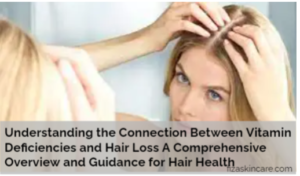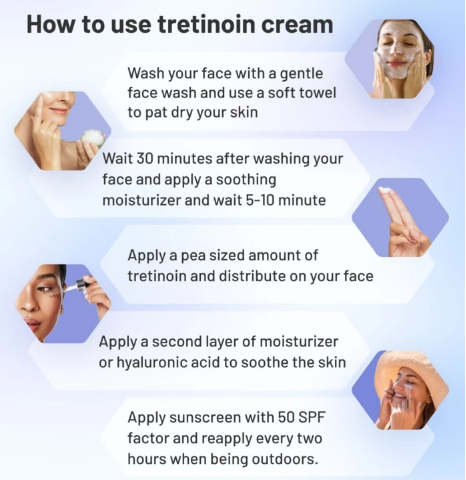Vitamin Deficiencies and Hair Loss thinning can be exacerbated by vitamin deficiencies. Vitamin D is one of the vitamins that is frequently linked to hair loss. Below is a summary of the connection between Vitamin Deficiencies and Hair Loss.

Insufficient Vitamin D
To sustain healthy hair follicles and encourage hair development, vitamin D is essential. Hair loss or thinning hair has been related to vitamin D deficiency. Hair follicles have vitamin D receptors, and low vitamin D levels can interfere with the hair development cycle and cause hair loss. It’s vital to remember that excessive vitamin D intake can also have negative effects, therefore it’s crucial to maintain balanced environments.
Vitamin B7 (biotin) Deficiency
Keratin is a protein that needs biotin to be formed. makes up the hair’s structure. Hair loss and brittle hair can result from a biotin deficiency. However, since the body only needs trace amounts of biotin and it may be found in many popular meals, biotin deficiency is still quite uncommon.
Additional B-Vitality shortages
Like niacin (B3), cobalamin (B12), and folate (B9), other B vitamins are important in the production of red blood cells. These cells support healthy hair development by supplying the hair follicles with nutrients and oxygen. Scarcities in certain B vitamins might exacerbate hair loss by weakening hair follicles.
Deficiency in Vitamin A
Sebum is a creamy fluid that coats the crown of hair and maintains its health. Vitamin A contributes to the production of this substance. A deficiency in vitamin A can cause dry hair and crowns, which can exacerbate hair loss. However, taking too much vitamin A can also have unfavorable effects, so it’s critical to have a balanced viewpoint.
Deficiency in Vitamin E
Preventative vitamin E aids in protecting hair follicles from oxidative damage. Vitamin E deficiency can have an impact on hair health, but severe cases are uncommon.
Iron Insufficiency
Despite not being a vitamin, iron is a mineral that is necessary for normal hair development. Treatment Hair loss can result from anemia or low iron levels. Iron is required for the finished product of oxygen is transported to the hair follicles by hemoglobin. Insufficient oxygen supply can cause follicle deterioration and contribute to hair loss.
Although vitamin shortages can be a factor in hair loss, it’s crucial to remember that there are other possible reasons for hair loss besides vitamin deficiencies. Hair loss can also be caused by other reasons, such as hormone imbalances, stress, heredity, and underlying medical disorders.
However, if you’re experiencing hair loss or believe you may be deficient in vitamins, it’s wise to see a dermatologist or other healthcare provider. They can assess your unique circumstances, carry out necessary testing to find any scarcities and provide treatment alternatives and well-supported recommendations. moreover, leading a healthy life and eating balanced food can promote the general condition of the hair. Vitamin shortages are one of the many colorful elements that might indicate hair fall or hair loss.
Certain vitamin shortages and hair loss Insufficient Vitamin D
Hair loss has been linked to vitamin D deficiency conditions. To sustain healthy hair follicles and encourage hair development, vitamin D is essential. Low levels of vitamin D can interfere with the cycle of hair development, causing thinning or hair loss.
Insufficiency of Vitamin B12
The production of red blood cells, which transport oxygen to the hair follicles, is critically dependent on vitamin B12. Due to a decrease in oxygen force, a vitamin B12 deficiency may damage hair follicles and possibly cause hair loss.
It’s crucial to remember that while vitamin shortages may play a role in hair loss, they are not the only one. Similar variables including heredity, hormone imbalances, stress, underlying medical disorders, and life circumstances can also play important important role in the loss of hair.
The same rules hold for vitamin scarcities that especially cause hair loss in women.
- However, it’s important to remember that hormonal fluctuations, such as those that occur during menopause or pregnancy, can also cause hair loss in women and disrupt the cycles of hair development.
- Still, if you think a Vitamin Deficiency Hair loss is causing your hair loss, it’s advised to speak with a dermatologist or other medical expert. They can assess your unique circumstances, carry out necessary testing to find any scarcities and provide treatment alternatives and well-supported recommendations. They could suggest dietary adjustments, vitamins, or other measures to treat the underlying deficiency and advance the health of the hair.
- moreover, practicing proper hair care, handling stressful situations, and keeping a nutritious and balanced diet Each habit can lessen hair loss and improve the general health of the hair.
- Alopecia, another name for hair loss, can be caused by a variety of variables, such as nutritional scarcity, hormone imbalances, heredity, and individual circumstances. Scarcities in some vitamins can lead to hair loss, even though many vitamins and minerals are necessary for healthy hair development.
D-vitamine
For healthy hair development and hair follicle cycling, vitamin D is necessary. Research has indicated a possible connection between low levels of vitamin D and hair loss, especially in autoimmune disorders such as alopecia areata, which results in patchy hair loss. Hair follicles have vitamin D receptors, and low vitamin D levels can interfere with the hair development cycle and cause thinning or hair loss.
B Vitamins
vitamins, such as cobalamin(B3), niacin(B3), and biotin (B7)B12), are essential for normal hair development. Specifically, biotin is often related to healthy hair, and deficiencies in this vitamin have been connected to hair loss. Red blood cells, which supply oxygen and nourishment to the hair follicles and crown, are aided by B vitamins. B vitamin scarcity has been linked to hair loss via weakening hair follicles.
Vitamin A Adequate
levels of vitamin A are essential for the development and separation of hair cells. Nevertheless, excessive vitamin A intake or insufficient vitamin A can also cause hair loss. For the best possible health of your hair, it’s critical to keep your vitamin A levels balanced.
Vitamin E Antioxidant
vitamin E helps protect hair follicles from oxidative damage. tension. can Although severe vitamin E deficiency is uncommon, low vitamin E levels can have an impact on hair health and can cause hair loss.
Iron
Although iron is a mineral and not a vitamin, it is essential for sustaining good hair development. Hair loss can result from anemia, or low iron levels. Hair follicles may become feeble and enter a resting phase in the absence of enough oxygen force, which can result in hair loss.
Additional variables that might be linked to hair loss include stress, autoimmune disorders, hormonal imbalances (such as thyroid illnesses), allergies, as well as inherited propensity.
They can assess your unique circumstances, carry out necessary testing to find any scarcities and provide treatment alternatives and well-supported recommendations. Additionally, leading a healthy lifestyle and eating a balanced, nutrient-dense diet helps promote overall hair health.
The following vitamins and nutrients can help women’s hair grow and stay consistent:
Biotin Typically, people use biotin tablets to strengthen and promote hair growth. Keratin is a protein that makes up the structure of hair, and biotin is involved in its production.
Vitamin C Antioxidant
vitamin C aids in the production of collagen. This is necessary for the growth of healthy hair. It also helps with iron absorption, which is important for healthy hair.
Vitamin E
Supplementing with vitamin E helps protect hair follicles from harm and promotes general hair health. If iron deficiency is associated with hair loss, iron supplements may be advised. Before beginning an iron supplement, it’s crucial to speak with a healthcare provider because high iron levels can be harmful.
Adipose-3-Omega Acids
Omega-3 adipose acids are often included in fish oil painting supplements. It can assist healthy hair development by promoting crown health and reducing inflammation.
Even while vitamins and supplements might benefit hair health, it’s crucial to keep an overall nutritious and well-balanced diet. They can assess your unique circumstances, pinpoint any underlying reasons or scarcities, and provide tailored recommendations for therapies or supplements that will promote hair development.



